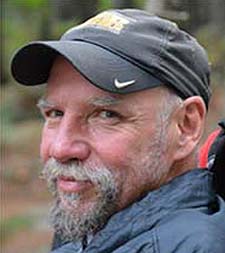On March 7, 2019, CCAR celebrated 20 strong years serving the recovery community (people in recovery family members, friends and allies). CCAR founder Bob Savage attended along with many past CCAR Board presidents. The Board asked me to wrap up the evening with a short keynote.
How could I condense years and years of learning into a clear and relevant message?
After weeks of thought and several drafts, I talked about the top three strategies for leading a recovery community organization. The strategies intertwine and center on Connection, Culture and Care.
Strategy 1: Foster CONNECTION – key to recovery.
In my life, addiction isolated me from people. Recovery connected me again.
Back in 1987, the birth of my daughter shocked my addicted system and shattered my denial. At the time, I lived in stark isolation while surrounded by people. I ventured into the rooms of Alcoholics Anonymous with trepidation, anxiety and uncertainty. Immediately, I observed eyes glimmering with a mysterious light. These audacious people smiled, laughed and hugged one another. I pushed aside my self-imposed skepticism and determined I longed for what they had.
In 2015, on the Appalachian Trail, I routinely encountered other dirty, hairy and smelly thruhikers who were routinely dismissed, discounted and disregarded in restaurants, grocery stores, laundromats and hotels, yet they had the same light in their eyes. We conversed gracefully and with deep meaning. I’ve come to believe our souls connected. This connection proved vital for my personal transformation.
Transformed people transform people.
How does CCAR foster connection?
Here are two examples. In our long-standing Telephone Recovery Support (TRS) program – where we call recoverees once a week to check in on their recovery – Since TRS began, CCAR volunteers amassed these inspiring numbers.
- 366,421 phone calls made
- 111,198 conversations held
- 13,051 individuals contacted
The CCAR Emergency Department Recovery Coach (EDRC) program generates impressive statistics too. In just 2 years, CCAR coaches have
- Fielded 4,517 dispatch calls
- Seen 3,615 individuals (does not include all the family members)
- Assertively linked people to ongoing care 92% of the time
Strategy 2: Nurture the organizational CULTURE
In the fall of 2010, I sat in another session with my Executive Coach Carol Kardas. I questioned my competency to lead CCAR; my confidence and direction dazed by the brutal treatment to cure Stage 4 cancer of the tongue. She asked me one single question that shaped my approach since.
Phil, what type of environment do you want to work in?
After years of contemplation and intentional development of the CCAR culture, I am grateful beyond belief to work in an ideal environment today. The leadership team and staff consistently discuss and contribute to our culture, a culture of care, support and purpose. We conduct ourselves RIGHT, with respect, integrity, gratitude, honesty and transparency(follow link to previous blog).
Perspective, my perspective influences the culture. I believe in a “flattened” organizational structure. Instead of the typical top-down mentality, I picture myself surrounded by an entire team. My primary purpose? To elevate those around me. Leaders have one primary task, to develop other leaders.
Strategy 3: It’s OK to CARE deeply… and be deeply CARED for.
Care from others brought me into a life of recovery.
I re-learned the importance of care when I received a huge dose while being treated for cancer. The outpouring filled our refrigerator with casseroles and our hearts with love. I wish people received the same degree of care from the community when a loved one goes away for addiction treatment (see The Casserole Effect).
I completed a 2,189.2-mile thruhike of the Appalachian Trail in 2015 only because people cared for me.
I encourage people to care. I trust CCAR staff to conduct themselves appropriately and professionally as they care. Systems almost always raise warning flags about caring too much, that’s why I think CCAR culture somewhat rare.
People don’t care how much you know until they know how much you care.
Connect, Culture, Care… Continue.

In 2015, I finished a thruhike of the entire Appalachian Trail, a trek of 2,189.2 miles. It took 189 days and 6 pairs of boots. During that sacred time, my purpose in life became more precisely defined. I am, simply, to coach recovery. Recovery saved me from an early demise and brought purpose to my tattered life. I have learned that I’m a coach to my very core. I am blessed to put the two together. I started work at the Connecticut Community for Addiction Recovery (CCAR) in January 1999. I became the Executive Director of this recovery community organization in 2004. I have trained the CCAR Recovery Coach Academy© dozens of times and have a hand in modifying, improving and adapting various recovery coach curricula. I’m old enough now to start considering my legacy. This is one way for me to share lessons learned in my recovery, in my role as Executive Director and a trainer. When I engage with others, I present the same messages repeatedly. It’s time to write them down.
Phil “Right Click” Valentine
Recovery established 12.28.87

Great article Phil, you are and have been an inspiration for me as we progress on our journey in creating a Recovery Community here in Solano County California.
Thank you